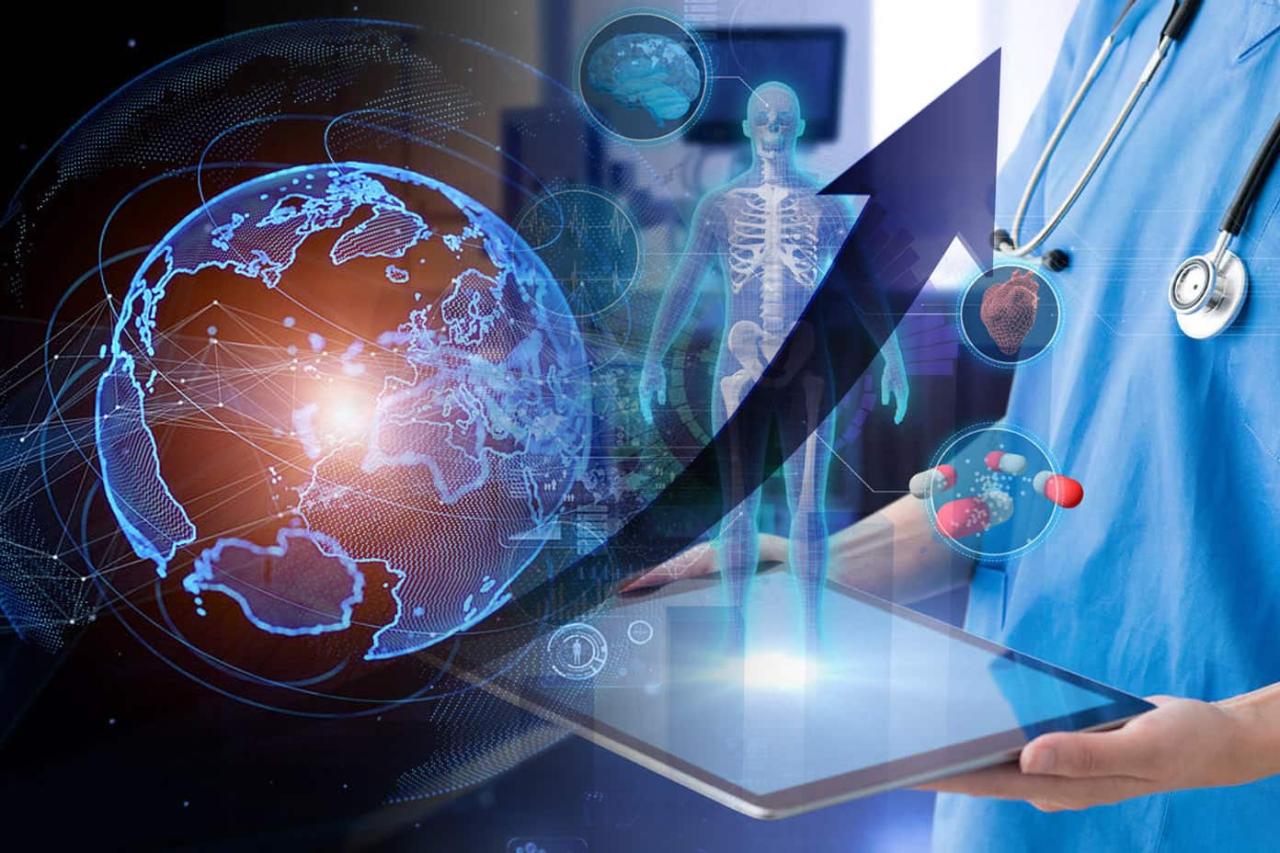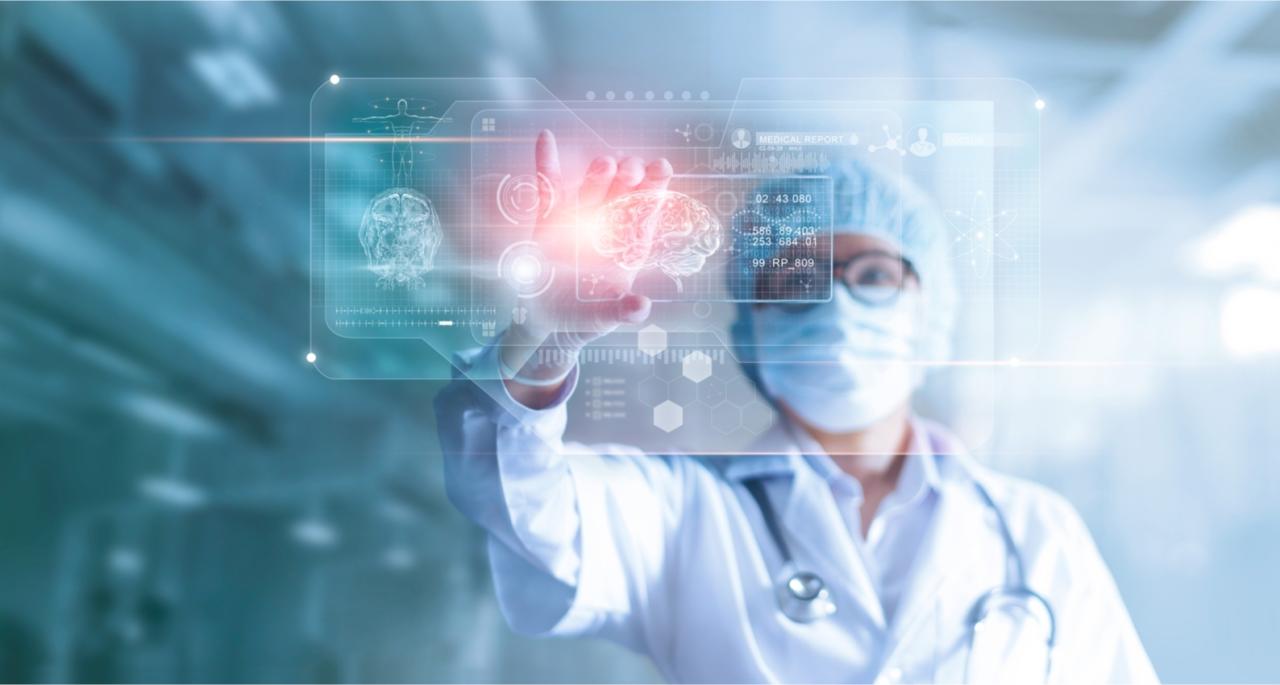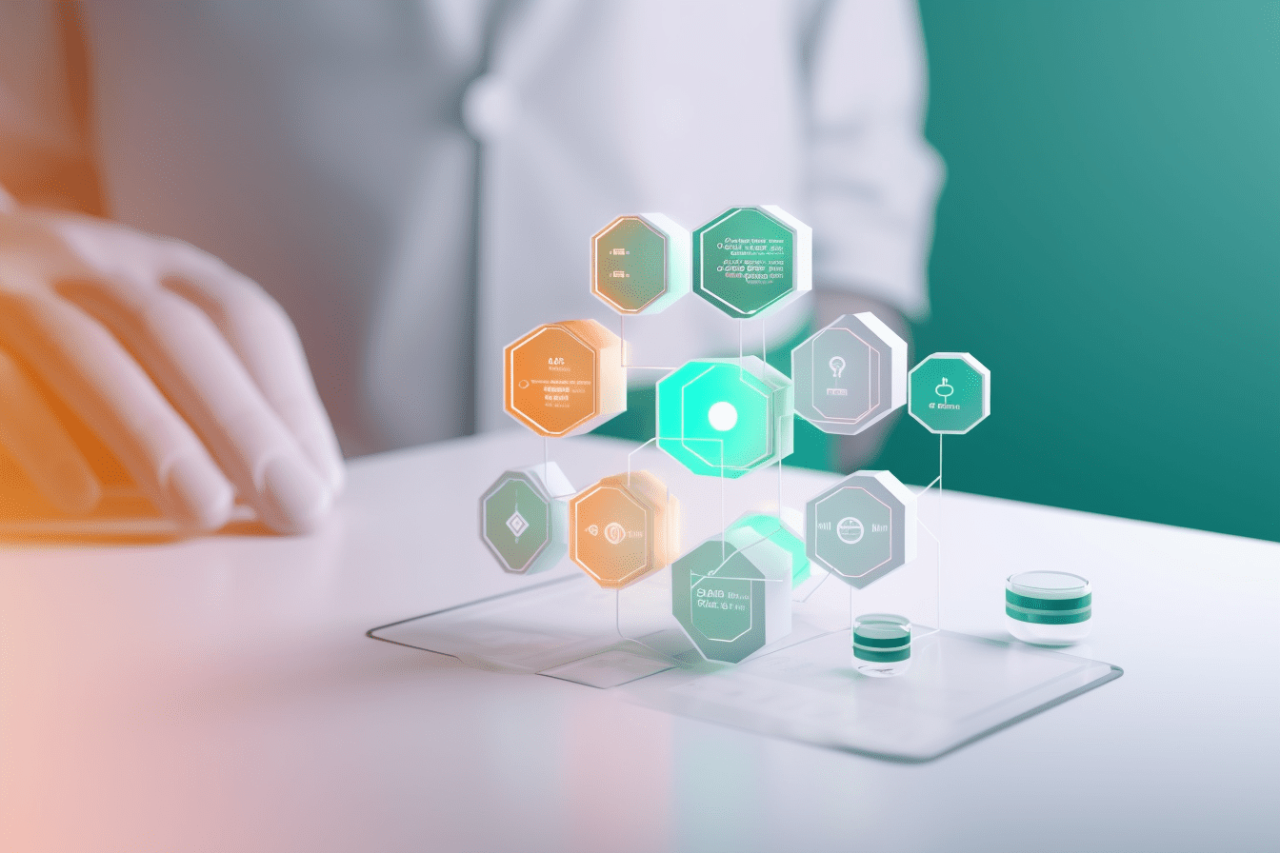Health Technology
Tech Innovations That Are Changing Global Healthcare: A Look into the Future of Medicine

In today's rapidly evolving world, technological advancements are revolutionizing the healthcare industry on a global scale. From artificial intelligence to wearable devices, the landscape of healthcare is being reshaped by innovative tech solutions. Let's delve into the realm of Tech Innovations That Are Changing Global Healthcare and explore the exciting possibilities that lie ahead.
Overview of Tech Innovations in Global Healthcare
In recent years, technology has played a crucial role in revolutionizing healthcare on a global scale. From improving patient care to enhancing disease management, tech innovations are reshaping the way healthcare is delivered and accessed worldwide.
Key Areas of Technological Impact in Healthcare
- Telemedicine: Telehealth services have enabled patients to consult with healthcare providers remotely, reducing the need for in-person visits and improving access to medical care, especially in rural or underserved areas.
- Health Information Technology (HIT): Electronic health records (EHRs) and health information exchange (HIE) systems have streamlined data sharing among healthcare providers, leading to better coordination of care and improved patient outcomes.
- Medical Devices and Wearables: Advanced medical devices and wearable technologies, such as smartwatches and fitness trackers, are helping individuals monitor their health in real-time, track vital signs, and manage chronic conditions more effectively.
Potential Benefits of Integrating Technology into Healthcare Systems
- Enhanced Patient Care: Technology allows for personalized treatment plans, remote monitoring, and timely interventions, leading to better health outcomes and improved quality of life for patients.
- Efficient Healthcare Delivery: Streamlining administrative processes, automating tasks, and reducing paperwork through technology can optimize workflows, increase productivity, and ultimately lower healthcare costs.
- Data-Driven Decision Making: Analyzing large volumes of healthcare data using artificial intelligence (AI) and machine learning algorithms can help healthcare providers make more informed decisions, identify trends, and improve diagnostic accuracy.
Telemedicine and Remote Patient Monitoring
Telemedicine and remote patient monitoring are revolutionizing the healthcare industry by providing convenient and efficient ways for patients to receive medical care without the need for in-person visits. These technologies not only improve access to healthcare services but also enhance the management of chronic diseases through continuous monitoring and timely interventions.
Telemedicine
Telemedicine involves the use of technology to facilitate remote consultations between patients and healthcare providers. Through video calls, messaging apps, and other communication tools, patients can receive medical advice, diagnosis, and treatment without having to visit a clinic or hospital.
This not only saves time and reduces travel costs but also allows patients in remote areas to access quality healthcare services.
- Virtual consultations with healthcare providers
- Remote monitoring of vital signs and symptoms
- Electronic prescribing and online pharmacies
Remote Patient Monitoring
Remote patient monitoring enables healthcare providers to track patients' health data in real-time from a distance. This technology is particularly valuable for managing chronic conditions such as diabetes, heart disease, and hypertension, as it allows for continuous monitoring of vital signs and early detection of potential complications.
By analyzing data collected from wearable devices and sensors, healthcare providers can personalize treatment plans and intervene proactively to prevent exacerbations.
- Wearable devices for tracking blood glucose levels
- Sensors for monitoring blood pressure and heart rate
- Smart scales for tracking weight and body mass index
Artificial Intelligence and Machine Learning in Healthcare

Artificial Intelligence (AI) and Machine Learning have been instrumental in transforming the landscape of healthcare by enhancing diagnostics, treatment, and patient care. These technologies have the potential to revolutionize the way medical professionals approach various aspects of healthcare.
AI Applications in Healthcare
- AI-powered predictive analytics can help healthcare providers anticipate potential health issues in patients by analyzing data and identifying patterns that may not be apparent to human clinicians.
- Machine Learning algorithms can be used to develop personalized treatment plans for patients based on their unique health data, genetic makeup, and lifestyle factors.
- AI can assist in medical imaging interpretation, improving the accuracy of diagnostic scans and reducing the time required for analysis.
Challenges and Ethical Considerations
- One of the major challenges associated with AI in healthcare is ensuring the privacy and security of patient data, as AI systems rely heavily on vast amounts of sensitive information.
- There are concerns about the potential bias in AI algorithms, leading to disparities in healthcare outcomes among different demographic groups.
- Ethical considerations arise when AI is used to make critical decisions in patient care, raising questions about accountability and transparency in the decision-making process.
Wearable Devices and Health Tracking Technology

Wearable devices and health tracking technology have revolutionized the way individuals monitor and manage their health. These innovative tools have become increasingly popular in promoting overall wellness and empowering users to take control of their well-being.
Role of Wearable Devices in Promoting Health and Wellness
- Wearable devices such as smartwatches, fitness trackers, and health monitors allow individuals to track their physical activity, heart rate, sleep patterns, and even stress levels.
- These devices provide real-time data and feedback, encouraging users to make healthier choices and stay active throughout the day.
- By promoting awareness of their health metrics, wearable devices motivate users to set and achieve fitness goals, leading to improved overall well-being.
Impact of Health Tracking Technology on Healthcare Outcomes
- Health tracking technology enables individuals to monitor chronic conditions such as diabetes, hypertension, and heart disease more effectively.
- By continuously tracking vital signs and symptoms, users can detect early warning signs and seek medical attention promptly, potentially preventing serious health complications.
- Healthcare providers can also access real-time data from wearable devices, allowing for remote monitoring of patients and personalized treatment plans based on individual health data.
Comparison of Different Types of Wearable Devices
- Smartwatches offer a wide range of health and fitness features, including heart rate monitoring, activity tracking, and even ECG capabilities in some models.
- Fitness trackers focus primarily on physical activity, steps taken, calories burned, and sleep quality, providing users with insights into their daily movement patterns.
- Health monitors, such as blood pressure cuffs and glucose meters, are essential for individuals managing chronic conditions, offering accurate measurements and data tracking.
3D Printing and Customized Medical Devices
D printing technology has revolutionized the healthcare industry by enabling the production of customized medical implants and prosthetics. These personalized devices are tailored to fit the specific needs and anatomy of individual patients, offering numerous advantages over traditional mass-produced medical devices.
Customized Medical Implants and Prosthetics
- 3D printing allows for the creation of patient-specific implants and prosthetics based on medical imaging data, such as CT scans or MRIs.
- Customized devices ensure a better fit, improved functionality, and reduced risk of complications compared to standard off-the-shelf options.
- Examples include 3D-printed orthopedic implants, dental prosthetics, and cranial plates designed to match the unique anatomy of each patient.
Blockchain Technology in Healthcare
Blockchain technology is revolutionizing the healthcare industry by enhancing data security and interoperability. By utilizing decentralized and encrypted ledgers, blockchain ensures that sensitive patient information is securely stored and shared among healthcare providers. This helps in preventing data breaches and unauthorized access to medical records, ultimately improving patient privacy and confidentiality.
Enhancing Transparency and Trust
Blockchain has the potential to improve transparency and trust in healthcare systems by providing a tamper-proof record of transactions. This allows patients, healthcare providers, and insurers to have a transparent view of the entire healthcare journey, reducing fraud and ensuring accountability throughout the process.
- Blockchain can facilitate secure sharing of medical records among different healthcare providers, ensuring that patient information is accurate, up-to-date, and easily accessible.
- Smart contracts enabled by blockchain technology can automate and enforce agreements between patients and healthcare providers, streamlining processes and reducing disputes.
- Supply chain tracking using blockchain ensures the authenticity of pharmaceuticals and medical devices, reducing the risk of counterfeit products entering the market.
Virtual Reality and Augmented Reality in Healthcare
Virtual Reality (VR) and Augmented Reality (AR) are revolutionizing the healthcare industry by providing innovative solutions for medical training and patient care. These immersive technologies offer a range of benefits that are transforming healthcare delivery and improving outcomes for both healthcare professionals and patients.
Medical Training and Patient Care
- VR and AR are being used to simulate realistic medical scenarios for training healthcare professionals, allowing them to practice complex procedures in a safe and controlled environment.
- These technologies also enable medical students to visualize anatomy in 3D, enhancing their understanding of complex structures and improving learning outcomes.
- For patients, VR and AR can be used to reduce anxiety and pain during medical procedures by creating immersive and calming experiences.
Benefits of Immersive Technologies
- VR and AR can improve surgical outcomes by assisting surgeons with pre-operative planning and intraoperative navigation, leading to more precise procedures and reduced complications.
- These technologies also enhance pain management by distracting patients during painful treatments and providing relaxation techniques through immersive experiences.
- AR overlays real-time information onto a surgeon's field of view, allowing for better decision-making and accuracy during procedures.
Transformative Applications in Healthcare
- VR and AR applications are transforming healthcare delivery by enabling remote consultations, virtual therapy sessions, and telemedicine visits through immersive experiences.
- Companies like AccuVein are using AR technology to assist healthcare professionals in locating veins for blood draws and injections, improving patient comfort and reducing procedure time.
- VR simulations are being used to train medical teams for emergency situations, enhancing their preparedness and response capabilities in high-stress scenarios.
Final Conclusion

As we conclude our exploration of Tech Innovations That Are Changing Global Healthcare, it becomes evident that the intersection of technology and healthcare holds immense promise for the future. With continuous advancements and groundbreaking discoveries, the future of medicine is bright and filled with endless possibilities to improve patient care and outcomes worldwide.
FAQ Compilation
What are the potential benefits of integrating technology into healthcare systems?
Integrating technology into healthcare systems can lead to improved efficiency, better patient outcomes, increased access to care, and enhanced communication between healthcare providers and patients.
How is blockchain technology enhancing data security in healthcare?
Blockchain technology ensures secure and tamper-proof storage of medical data, protecting patient information from unauthorized access or alterations. This enhances data security and privacy in healthcare systems.
What role do wearable devices play in promoting health and wellness?
Wearable devices track various health metrics like heart rate, activity levels, and sleep patterns, empowering individuals to monitor their health in real-time and make informed lifestyle choices to improve overall wellness.







